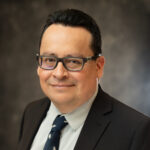The role of mathematical and computational modeling in lung cancer epidemiology and prevention; lung screening, e-cigarettes, disparities, and other new challenges 70 years after Doll and Hill

You are invited! Dr. Rafael Meza will be giving a research presentation on Friday, May 31.
Presentation: The role of mathematical and computational modeling in lung cancer epidemiology and prevention; lung screening, e-cigarettes, disparities, and other new challenges 70 years after Doll and Hill
Location:
In-person: Room B104, School of Population and Public Health, 2206 East Mall, Vancouver, BC Canada V6T 1Z3
Online: Zoom
If attending on Zoom, please register using the link below to receive the Zoom details.
https://ubc.zoom.us/meeting/register/u5Ikde-pqDIvHtzF_tDbN1wnSXXCddRw-q0V
About the presentation
Seventy years after the seminal smoking and lung cancer work of Doll, Hill, Wynder and Graham, lung cancer remains as the main cause of cancer death globally. While smoking and lung cancer rates are decreasing in the US and screening and treatment improvements provide new tools in the fight against lung cancer, new challenges are arising, including the emergence of e-cigarettes and the continuing disparities in lung cancer outcomes by race and income. Since the 1950s, mathematical modeling has played an important role in advancing our knowledge of lung cancer biology and epidemiology, and in shaping lung cancer prevention and control strategies. In this talk Dr. Meza will describe the contributions of mathematical and computational modeling in cancer epidemiology and prevention, highlighting recent applications in tobacco control and lung cancer prevention, and discussing modeling’s role as we move to a new era of lung cancer research.
About the presenter

Dr. Rafael Meza is Distinguished Scientist at BC Cancer and Adjunct Professor at the UBC School of Population and Public Health. He has a PhD in Applied Mathematics from the University of Washington. Prior to joining BC Cancer, Dr. Meza was Professor of Epidemiology at the University of Michigan. Dr. Meza’s research focuses on tobacco and lung cancer epidemiology and prevention. He is principal investigator of the Cancer Intervention and Surveillance Modeling Network (CISNET) Lung Working Group, and of the Center for the Assessment of Tobacco Regulations, one of seven tobacco regulatory science centers funded by the NIH and FDA.
